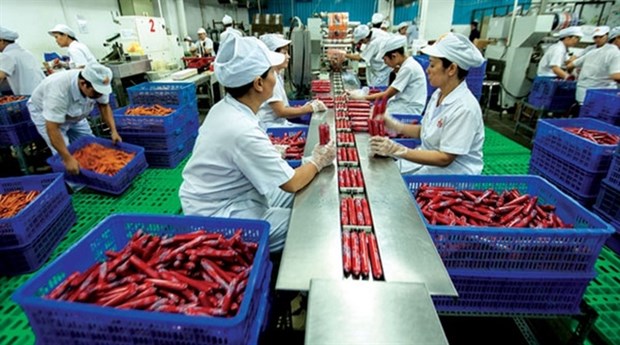- © Copyright of Vietnamnet Global.
- Tel: 024 3772 7988 Fax: (024) 37722734
- Email: evnn@vietnamnet.vn
vissan
Update news vissan
Food processing firms step up production, focus on safety measures for workers
 Food processing firms in Ho Chi Minh City have stepped up production to meet demand while also enhancing safety measures for their staff amid the Covid-19 pandemic.
Food processing firms in Ho Chi Minh City have stepped up production to meet demand while also enhancing safety measures for their staff amid the Covid-19 pandemic.
Snacks market attracts more investment from food producers
VietNamNet Bridge - Large food corporations have jumped into the snack market with traditional dishes, competing directly with street food shops.
Food processing industry in Mekong Delta still not attracting investors
VietNamNet Bridge - Though it is the country’s biggest granary and fishery area, exporting $30 billion worth of products each year, the Mekong Delta still cannot attract major investments.
Vietnamese tycoons compete with big foreign companies
VietNamNet Bridge - In many ‘duels’, it is not the foreign giants with powerful financial capability and experience, but rather the Vietnamese conglomerateswho are the winners.
Foreign investors eye food companies
VietNamNet Bridge - The success of Vissan’s IPO held earlier last week showed that foreign investors find the food sector in the country attractive.
Masan Group becomes Vissan’s strategic investor
VietNamNet Bridge – At the price of VND126,000 per share, all 11.3 million shares for the strategic investor of Vissan now belong to Anco International Agricultural Nutrition JSC, a subsidiary of Masan Group.
What are foreign investors targeting when buying Vissan’s shares?
VietNamNet Bridge - The initial public offering (IPO) of Vissan, a foodstuff processor, shows stiff competition in the Vietnamese distribution market.
Food processors try to regain local market with closed production lines
VietNamNet Bridge – Many Vietnamese believe that creating a closed production line is the only effective solution to confront foreign competitors in the domestic market.
SMEs struggle under new gov't resolution
VietNamNet Bridge – Under the Government's newly issued Resolution 02, some small- and medium-sized enterprises no longer qualify for preferential policies, which has left them struggling to pay debts and continue production,








